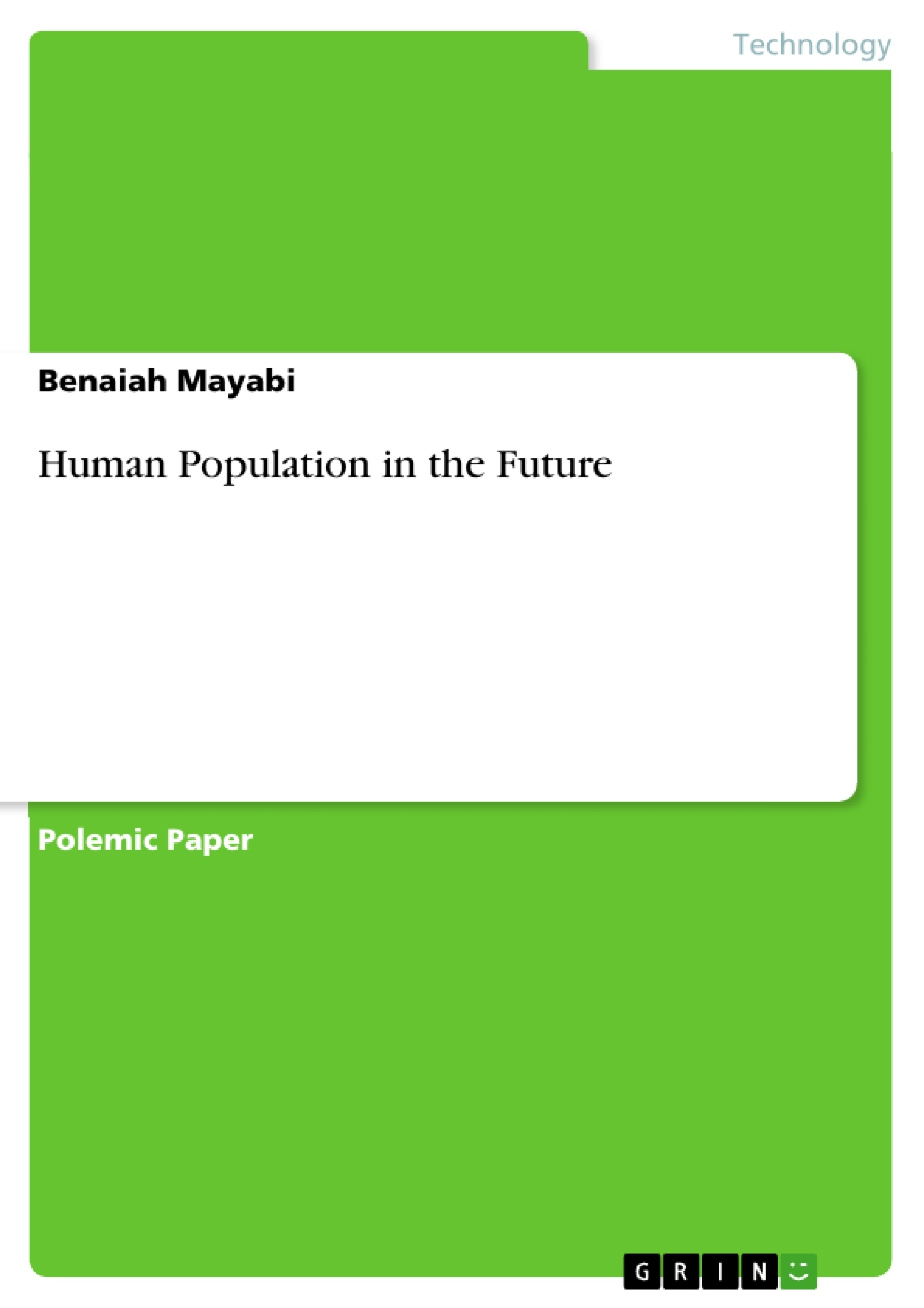Currently, there is more human population than the available natural resources to sustain such rising numbers of people. The highest rates of population increase are in the developing countries which are also characterized by poverty among other social problems. It follows therefore that these countries need to move with speed to tame and regulate the surging populations because failure to do so may mean less or no survival in the few coming years.
Third world countries need to come up with policies to regulate population as this would be the only way out of the problem we could be heading into because of large populations and less resources to sustain such populations. It is evident that while world populations keep on increasing, the natural resources we depend on keep on reducing which means that there is too much pressure on the environment to provide what it cannot. Biodiversity is now threatened and so is the human population because humans depend almost entirely on the environment.
Inhaltsverzeichnis (Table of Contents)
- Human Population
- Population Increase and Environmental Degradation
- Malthus's Hypothesis
- Esther Boserup's Dispute
- Population Control Policies in Third World Countries
- Somalia
- Nigeria
- The Effects of Population on Agricultural Development
- Population and Environmental Degradation in Developing Countries
- Conclusion
Zielsetzung und Themenschwerpunkte (Objectives and Key Themes)
This text examines the challenges of rising human population, particularly in developing countries, and its detrimental impact on the environment. It explores the relationship between population growth, resource depletion, and environmental degradation, emphasizing the need for population control measures.
- The relationship between population increase and environmental degradation
- The effects of uncontrolled population growth on resource availability and consumption
- The importance of population control policies in developing countries
- The impact of population growth on agricultural development and food security
- The urgent need for sustainable development practices to address the challenges posed by population growth
Zusammenfassung der Kapitel (Chapter Summaries)
The text begins by outlining the dire consequences of uncontrolled population growth, particularly in developing countries, highlighting the strain on natural resources and the need for population regulation.
The text then delves into the historical debate between Malthus's theory of population increase leading to environmental degradation and Boserup's argument that population growth drives innovation and agricultural development. It examines the impact of population growth in countries like Somalia and Nigeria, highlighting the challenges faced due to uncontrolled birth rates.
The text further explores the implications of population growth on agricultural development, emphasizing the challenges faced by developing countries in feeding their growing populations. It highlights the need for sustainable agricultural practices and the limitations of relying solely on traditional agricultural methods.
The text concludes by underscoring the urgent need for developing countries to address their population growth and implement sustainable development strategies to mitigate the environmental and social consequences of uncontrolled population growth.
Schlüsselwörter (Keywords)
The key concepts and themes explored in this text include population growth, environmental degradation, resource depletion, population control, sustainable development, agricultural development, food security, developing countries, and environmental impact.
Frequently Asked Questions
What is the relationship between population growth and natural resources?
Currently, the human population is increasing faster than the available natural resources can sustain, leading to environmental degradation and resource depletion.
What was Malthus's hypothesis regarding population?
Malthus argued that population growth would eventually outpace food production, leading to inevitable environmental collapse and social catastrophe.
How did Esther Boserup view population growth?
Contrary to Malthus, Boserup suggested that population growth acts as a stimulus for innovation and technological advancement in agriculture.
Why is population control critical for developing countries?
Developing nations often face high poverty rates and limited resources; without population regulation, sustainability and survival in the coming years are threatened.
What are the effects of overpopulation on biodiversity?
Large populations put excessive pressure on the environment, leading to habitat loss, overexploitation of resources, and a significant threat to global biodiversity.
- Citation du texte
- Benaiah Mayabi (Auteur), 2017, Human Population in the Future, Munich, GRIN Verlag, https://www.grin.com/document/414663



